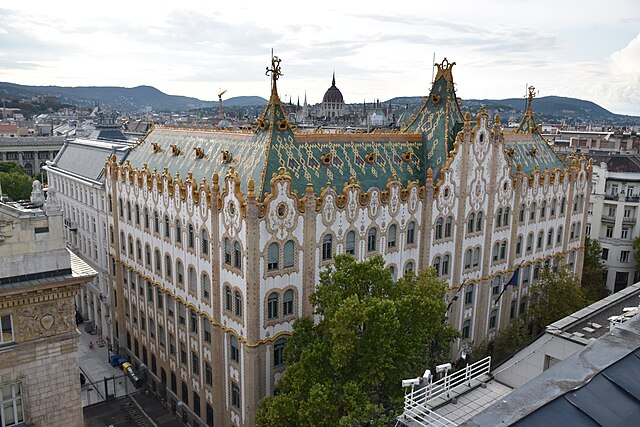Budapest’s treasures are being sold off: Downtown state palaces can secretly end up in private hands

A new real estate scandal has sparked outrage in Budapest: the government is quietly selling off dozens of state-owned landmark buildings in the city’s historic downtown, without any consultation. According to the opposition, the move is intended to transfer national assets to Prime Minister Viktor Orbán’s son-in-law, István Tiborcz, and his business circle.
A fire sale of Budapest?
As reported by HVG, a fresh controversy has engulfed Budapest’s political scene in recent days: the government plans to sell off dozens of state-owned properties located in the heart of the capital—quietly, with just a few days’ notice—via a PDF uploaded to the Hungarian National Asset Management Inc. (MNV) website.
The list includes historically significant buildings such as the former Ministry of Interior on Széchenyi Square, the Ministry of Finance’s palace on József Nádor Square, and the tile-roofed Hungarian State Treasury on Hold Street. These iconic landmarks are poised to change hands without any input from the city’s administration, and with no accompanying urban development plan or long-term vision. Dávid Vitézy, leader of the Podmaniczky Movement, warned: “The government is practically holding a clearance sale in Budapest.”
Privatisation or plunder?
But critics argue this isn’t merely reckless asset dumping. According to Péter Magyar, president of the Tisza Party, this is an orchestrated transfer of wealth, potentially resulting in these high-value properties landing in the hands of István Tiborcz and his associates. Magyar insists that this is not traditional privatisation but outright “plundering”, facilitated by private capital inflated with public funds. He pointed out that, under János Lázár’s leadership, the government previously purchased overpriced office buildings from Tiborcz’s companies for around HUF 700 billion—and now, this same money could be used to buy Budapest’s most valuable state-owned palaces.
A cloud of unanswered questions
This issue goes beyond economics: it represents one of the gravest threats to Budapest’s cultural heritage in recent memory. The city’s historic downtown is under UNESCO World Heritage protection, and, as Dávid Vitézy emphasised, such a significant decision—made without consultation and almost in secret—would be unprecedented in Europe.
The situation raises not only professional concerns but serious questions about democratic accountability. “Where is Alexandra Szentkirályi, the government official in charge of Budapest?” Vitézy demanded, recalling that during an earlier City Hall controversy, Fidesz was loudly protesting—whereas now, it remains silent.
To date, the government has issued no official explanation for why these important properties are being sold or what the ultimate goal is. Meanwhile, Péter Magyar made it clear: if the Tisza Party or other opposition forces come to power, a new Office for the Recovery and Protection of National Assets would investigate all such transactions and reclaim squandered public property.
The stakes are not merely financial: Budapest’s historic character, cultural heritage, and shared identity are at risk. The city’s residents, along with professional and civil organisations, rightly demand answers about who stands to gain—and why—as the last jewels of Budapest’s state-owned properties are handed over.
Read more property-related news on Daily News Hungary.
Read also:
- PM Orbán proposes new rules giving Hungarian municipalities greater control over newcomers, foreigners
- Post offices, apartments, and more: Hungary giving away state-owned properties
To read or share this article in Hungarian, click here: Helló Magyar







